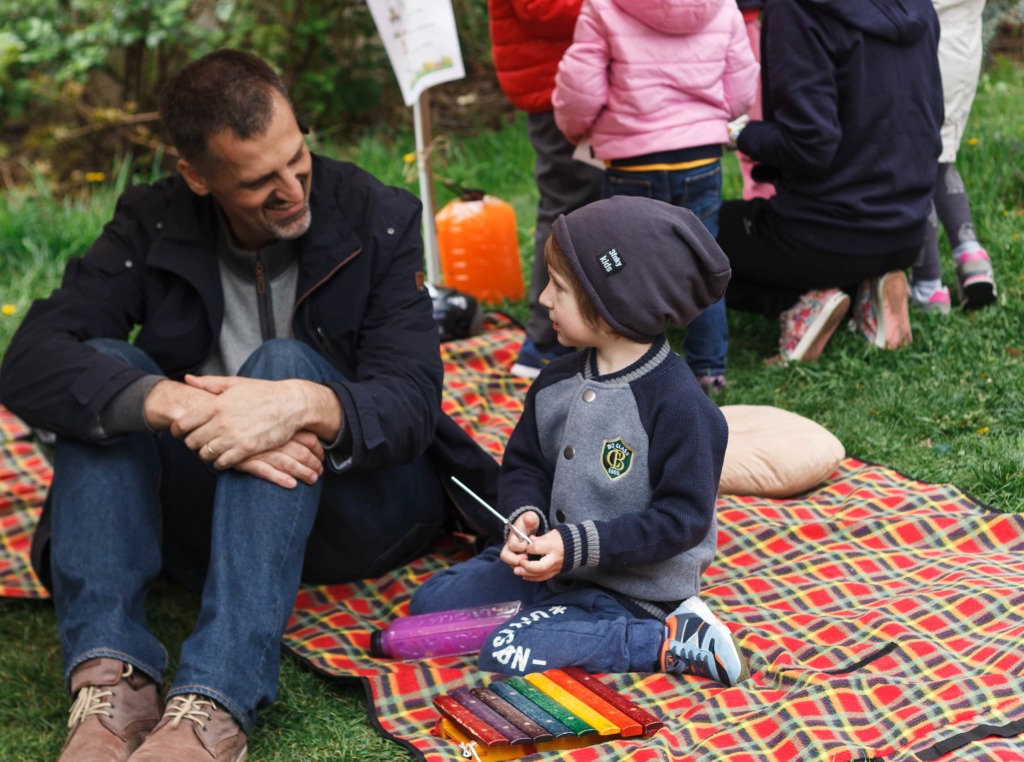Each person has their own temperament and their own way of seeing the world. This characteristic is inate and you can discover from the first interaction with a child whether they are shy or outgoing.
Outgoing personalities are noisy, make friends easily and share toys with others while shy children are timid, preferring to spend time alone and need time to get used to a new environment. They are dependent on their mum’s company at playgrounds and often cry if someone tries to get too close to them or is too rough. Shy children need understanding and special attention from parents and teachers until they learn to integrate in social settings.
We have put together 10 tips for parents who are finding it hard to manage their shy child, with the help of Valentina Secara, the founder of Acorns Nursery, (which follows the British model) and the foundation First7- Teachers & Educators Coaching.

- Help him to communicate
There are some tips that you can use in every day conversations with your shy child:
- Listen until he finishes what he wants to say and wait until he answers questions that you ask. She children need more patience when communicating.
- Accept and respect his needs for quiet moments
- Express your disagreement in a warm, diplomatic way
- Control your reactions especially if you get angry quickly
Even though any teacher should get to know the things to look our for when talking to shy children, specialists in early years education recommend parents to talk about their child’s temperament and the ways in which he deals with everyday challenges.
Introverts who manage to overcome their wish for being alone are able to integrate and feel at ease in their environment, are a real win for society, are valuable and special people and parents have a huge role in their development.
- Understand what is happening with your child
According to research, the brain of a shy child works differently compared to their out going friends. In extrovert children, stimuli pass through the area where the 4 senses are processed while, in shy children
stimuli pass through areas associated with memory, planning and problem solving. While this information doesn’t help us become better at interacting with our shy child, but it does help us understand that their temperament is not their ‘fault’.
- Teach them to know their strengths
It is true that your shy child will probably not be the group leader or have a record number of friends. However they will be a true friend and those who he/she chooses to be close to will be very lucky. Your child is trustworthy and will keep their word. Focus on your child’s qualities and you may find you have a lot to learn from them.
- Don’t try to change him/her
Children don’t have control over the way they behave and this can generate a lot of frustration when parents want them to behave in a way which goes against their child’s natural temperament. With time, this can affect their emotional development and may even lead to a false self image which can lead to psychological problems later on.
- Prepare him for what will come later
Talk to your child at home about what will happen on their first day at a new nursery, who they will meet, what they can talk about with others etc. Try to arrive in good time in order to meet their teacher, look around the classroom, see where the bathroom is etc.
- Help him to get used to meeting new people
Shy people can feel over whelmed and anxious among new people. You shouldn’t expect a shy child to interact straight away with new children at nursery or in the playground. If possible, try to arrive early so that your little one can get used to the place before others arrive.
- Give your child the space and time they need
There is nothing wrong with keeping your child to one side a few minutes, until he/she feels comfortable to enter the ‘action’. Always remember to take things one step at a time no matter the type of new experience that you are trying to prepare your child for. Respect their needs but don’t offer them the chance to back out. At home, offer time for them to be alone even if their absence creates a strange feeling sometimes.
- Be there for him
Show that you are there every step of the way. In childhood every new environment is a new challenge. Support him/her at all times even if you feel as if you are the only mum on the playground. Even when you don’t need to go everywhere with him, continue to talk about his every day experiences. Shy children tend to keep their problems inside. Be his best friend in order to help him talk when he feels the need.
- Remind him that he can leave a game or have some quiet time if he feels overwhelmed or tired.
While extraverts are energized by socializing, shy children find these situations tiring. Keep an eye on him and remind him that he can take some time out for himself after a social time.
- Show your appreciation each time your shy child goes out of their comfort zone
You can use phrases such as “yesterday when I picked you up from nursery I noticed that you let your friend play with your toys. I know it wasn’t easy. I’m very proud of you”
- Help him to communicate
There are some tips that you can use in every day conversations with your shy child:
- Listen until he finishes what he wants to say and wait until he answers questions that you ask. She children need more patience when communicating.
- Accept and respect his needs for quiet moments
- Express your disagreement in a warm, diplomatic way
- Control your reactions especially if you get angry quickly
Even though any teacher should get to know the things to look our for when talking to shy children, specialists in early years education recommend parents to talk about their child’s temperament and the ways in which he deals with everyday challenges.
Introverts who manage to overcome their wish for being alone are able to integrate and feel at ease in their environment, are a real win for society, are valuable and special people and parents have a huge role in their development.
